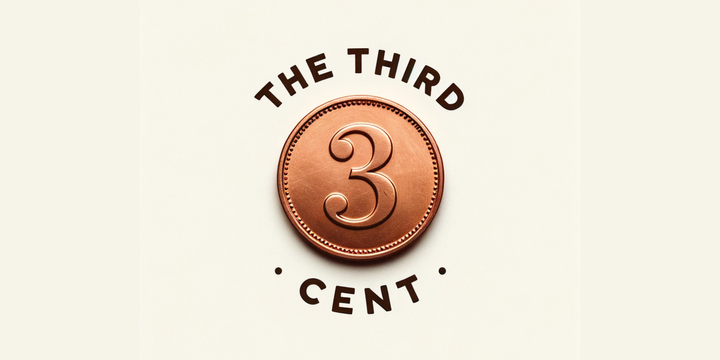Appointing a consumer distributor

The Teracom Limited case
Introduction
Over twenty years ago, Frazier wrote in a paper in the Journal of the Academic of Marketing Science, “we have barely touched the surface of all the managerial issues that need to be addressed” in the context of managing channels of distribution. While much has been written since then about the subject, there is still much work to do.
Distributors can make or break your firm. There is no denying that. Selecting a distributor can perhaps be the most critical decision that you could make in a firm’s distribution strategy. Most textbooks tell you that reputation, experience, product knowledge, current distribution network, customer service, financial situation and agreeable terms are all key factors that separate bad distributors from the good ones. With that having been said, there is very little in the form of advice to a young practitioner on how to go about selecting a good distributor. Let’s agree on one thing, selecting a good distributor is as much an art as it is a science. Having said that, let’s try and address the elephant in the room.
A distributor is a separate legal entity. While he or she is contractually bound by you, there is only so much that you can do to enforce the terms of the contract. If both the firm and the distributor do not work towards each other’s’ betterment, there is little that can keep them together. There are a hundred other priorities that distributors routinely have. As a sales manager, managing your distributor and his/her expectations is a key part of your job.
Since there is little practical advice on the subject matter, I thought I should document some of my own observations from my sales experience to help you understand potential red flags. I will also tease out how these issues from a transaction cost perspective. My hope here is that this may help you make head or tail of the situations that you are likely to find yourself in.
A brief note on Transaction Cost Theory
Transaction cost theory (TCE) is an economic theory that shines light on the factors that help firms choose between the ‘make’ and ‘buy’ decision. While the foundational idea was developed by Dr. Ronald Coase in 1937, it was Dr. Oliver E. Williamson and his work that greatly influenced it greatly. According to TCE, firms choose between making something and buying something from the open market based on ‘transaction costs’ or the costs that a firm incurs when it engages in exchange with others. This can include costs such as information costs, bargaining costs, and cost of enforcing contracts. When the firm incurs lower transaction costs to use the internal organization, it tends to use the internal organization. Similarly, when using the market forces is cheaper, firms tend to use the market.
On a related note, just this week, there was a brilliant article on The Economist titled ‘How technology is redrawing the boundaries of the firm’ . I’m linking the article here. Please do have a look, it’s quite insightful. I would like to refer you to a chart from the article (found below). The chart shows how much the outsourcing intensity is across some key firms.

Distributors as agents
Using the Transaction cost theory, we can identify that distributors are basically market players with whom firms contract out the key task of distribution. However, there is an interesting nuance in this regard. The distributor is not some market player who has a probability of securing a job from the firm. He or she is a contracted out player with whom we deal with regularly. There is a sort of contractual process that binds firms together with their distributors. In the theoretical space, these are called partner firms, and salespeople are often able to exert strategic control over them. These partner firms are also dependent on the main firm, but then there are several factors that influence this dependency. For instance, the partner firm/distributor may be involved in distributing other related products. This implies that the distributor may (1) reallocate resources between the various firms he’s dealing with and (2) not be as interested as you are in growing your business. This translates to several key problems in practice. For instance, disinterested or truant distributors may be utilize credit lines from one firm, convert it to cash and use it to procure stock from another firm. While this may be within all sort of contractual limits, it may cause a lot of psychological pain to a sales managers. Therefore, it may be important for salespeople to ensure that the distributor always has a certain amount of their firm’s stock.
While disinterested distributors are a source of significant heartache, a highly interested distributor can also be troublesome. In my person experience, I have seen several distributors soak up more stock than they can possibly sell during a sales period and leave distributors from other regions to have a stock out situation. Such a situation is exemplified in the table below.

While both scenarios ensure that 100 units of product is sold, scenario 2 is qualitatively better. As a sales manager, one should also focus on ensuring that all distributors are provided sufficient stock to earn his/her keep. In more ways than one, this is like walking a tightrope.

Conclusion
One of the reasons I was interested in this case over others is the fact that there is hardly anything on Teracom on the internet today. For a firm that was a darling of investors less than ten years ago, this firm seems to have vanished almost entirely. I really don’t know what happened with Teracom, but then, according to Zaubacorp’s listing the firm did not file it’s balance sheet after 31 March 2019. We can only guess as to what happened. However, we can speculate that the lack of sales may have had something to do it’s downfall.
One way young sales managers can overcome such a fate is by managing your distributors efficiently. A grounding in theory can help you in this regard. It may be important for you to keep a close watch of your distributors and try and understand, through data, which territories are underperforming. Think about it, as a sales manager, your purpose in the larger equation is to minimise the transaction costs as much as possible. In other words, you will have to identify and manage performance gaps in the distribution channel and ensure that search costs, information costs and monitoring costs are as low as they can possibly be. The only way to do all that is to build a strong internal team and maintain healthy relationships with all intermediaries such as distributors and retailers. It is through these relationships that one can effectively build profitable customer relationships in the long run.
Hope this helps clarify some key ideas! All the best!
See you soon in another article.



